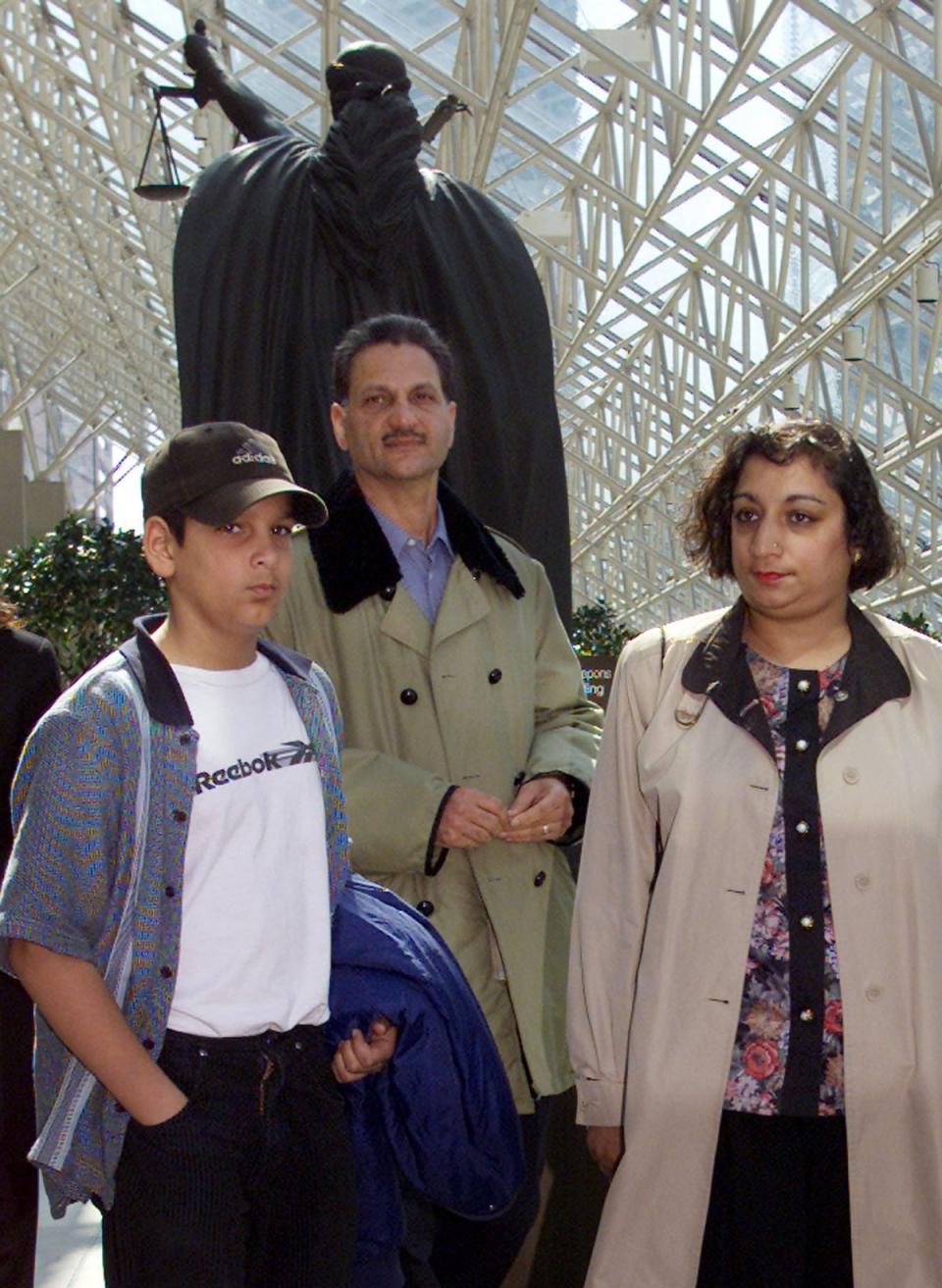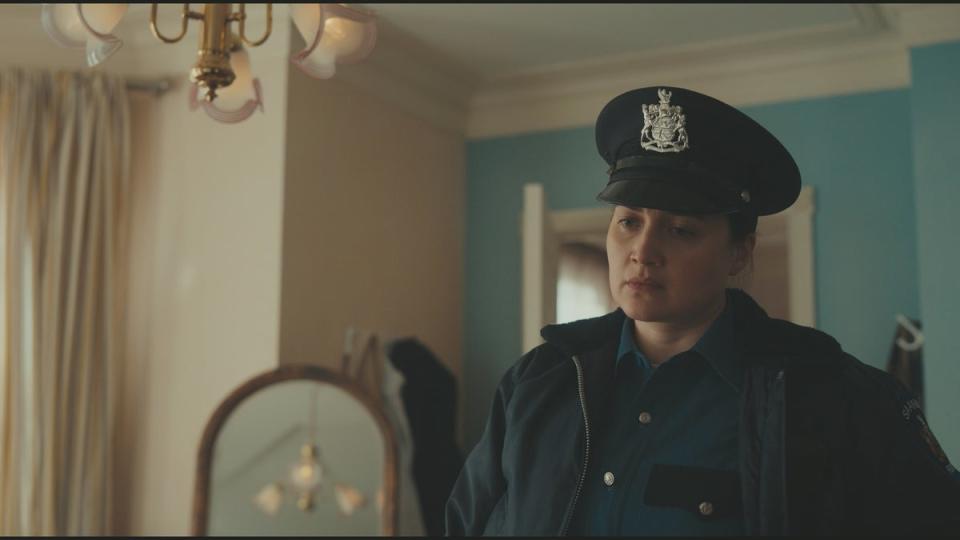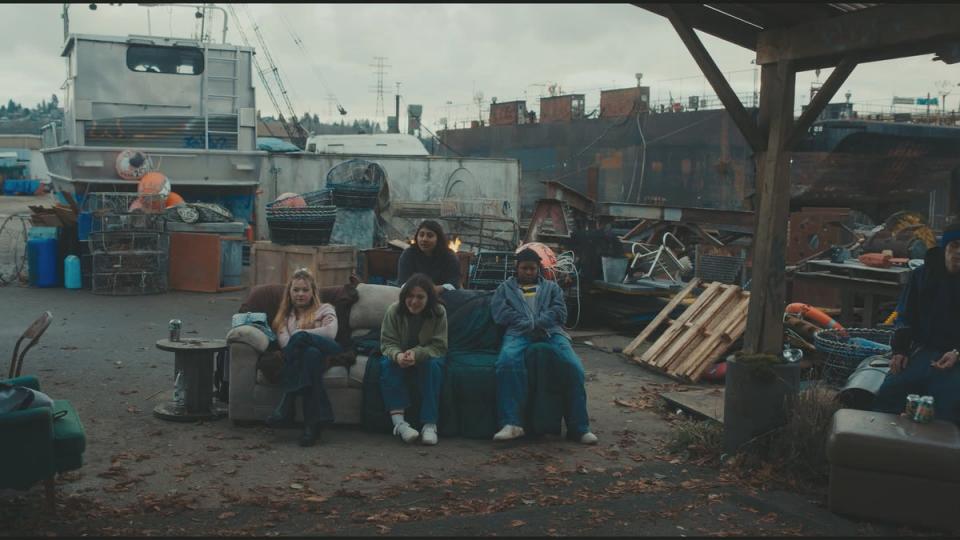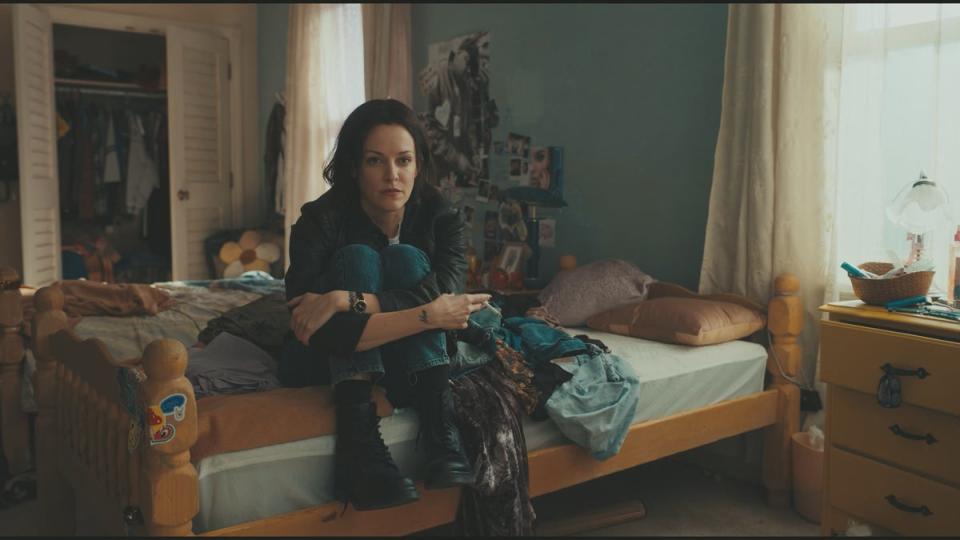Under The Bridge: the true story of Canadian teen killers who beat and drowned their friend
Reena Virk knew something was off that Friday night. There had been friction with another teen she had been hanging out with, and she knew trouble lay ahead.
She promised her increasingly concerned parents that she would be home for 10pm as she headed to meet her friends at the field behind the school. But she never returned.
After hanging out for a while with a group of teenagers, the 14-year-old would be attacked – beaten so badly the pathologist said it was as if her body had been run over by a car. She was found eight days later, drowned in the nearby river.
Now the story of this terrible crime – told partly through the eyes of journalist Rebecca Godfrey who investigated the story for her 2005 book Under the Bridge – has being turned into a series, which is available on Disney+.
Drawing on the memoir written by Reena's father, and Godfrey’s award-winning work, the series ask how a group of young people could do such a terrible thing.
Reena Virk
Things were not always easy for Reena Virk. The daughter of an Indian immigrant father and an Indo-Canadian mother, she grew up in Jehovah's Witnesses household, a minority group in her small South Asian community in Saanich, a suburb of British Columbia’s capital, Victoria.
She was 5”8, weighed 14 stone, had thick shiny black hair which she wore in a bob, and kind brown eyes. Her parents, Suman and Manjit were worried that high school was likely going to be difficult for Reena. At high school assimilation is key, and Reena, in many different ways, stood out.
Reena, an easy target, had been bullied throughout her life. Her father wrote later in his book that previously kids had put gum in her hair and made fun of her.
Reena’s attempts to fit in

Being a Jehovah's Witness, Reena did not celebrate birthdays or Christmas, things she desperately wanted to do. She'd always wanted to have fun and feel included – and this longing intensified as she got older.
One day she stumbled across other outsiders who were smoking in a park. Out of the group she particularly liked a blonde 14-year-old Josephine Bell*. Bell lived in a group home (a kind of assisted living facility) and imitated a gangster lifestyle.
Reena started smoking weed and cigarettes in a bid to fit in. She listened to East Coast hip hop, painted her nails blue, changed her clothes and fought with her parents.
She was “a rare combination of boldness and innocence,” said Godfrey in her book.
But some of her actions went beyond simple teenage rebellion. Reena sometimes skipped meals and ran away from home. She accused her father of molestation in 1996, and was placed into foster care. She later withdrew the allegation.
After her death, a report made for the British Columbia Coroners Service said that social workers had failed Reena by not investigating the veracity of her claim thoroughly enough before moving her from the family home.
"They failed miserably. There is no excuse for how they failed," said Suman to the Victoria Times-Colonist after her daughter's murder.
In the days leading up to her death Reena had been accused by her new friends of spreading rumours and of stealing someone’s boyfriend. According to Godfrey’s investigation, Reena had taken Bell’s address book and had been calling around some of Bell’s contacts, making up stories about Bell.
The attack

On November 14, 1997, when Reena was murdered near her home in Saanich by the peers she so wanted to be accepted by.
She was originally invited to join the teens on the field behind Shoreline School by Bell, who was angry about Reena’s recent actions. Reena thought they were meeting to go to a party. According to Godfrey writing for Vice in 2017, Bell’s mother “overheard [Bell] on the phone... talking about digging a grave and burying a girl.”
After police broke up the large group of 50 or so teenagers that had ended up gathering on the field, a smaller group moved to the dark Craigflower Bridge spot. Reena went with them.
There were 16 teenagers there at first; eight took part in the attack by the Gorge Waterway. It started when one teenager attempted to stub out a cigarette on Reena’s forehead; Reena tried to run away, some of the group surrounded her – others fled.
Someone smashed her head into a tree, another tried to set her hair on fire. The teen killers kicked her in the head and the body – when they found her body, eight days later, she had been kicked 18 times in the head.
According to one report, Reena cried, “I’m sorry”. According to Godfrey, some girls went through her backpack, throwing her perfume and diary into the river. One girl told everyone to stop. No one offered to help Reena, but some watched as they saw her staggering home.
It’s unclear at which point most of the teenagers left, and at which point Reena was attacked for a second time.
The second time, she fell unconscious. Reena was so severely beaten that the pathologist said it was likely she would have died from the injuries – they were so extreme some of her tissues had been totally crushed.
But some of the teen killers were not finished: they dragged her to the river just next to them, and drowned her in it.
Later, Manjeet said his daughter's ''biggest problem was her associations, her friends. 'We told her there were dangers out there to try and keep her safe,'' he said.
The investigation and trial

The police searched for Reena for over a week, eventually finding her semi-naked body in the river. Rumours were rampant in the schools in the area that a murder had taken place.
The police immediately started questioning the girls Reena spent time with, who, under pressure, pointed fingers at each other. According to Godfrey, Reena’s jacket was found in a girl called Kelly Ellard’s closet, covered in saltwater stains. Ellard, a close friend of Bell’s, who wore her hair in a bob and a stud in her nose, said it was her own.
As the hearing went to court later that month, young people packed out the halls of the courthouse. “I'm really surprised,” said one student who went to school with five of the defendants. “They don't seem like those kind of people.”
After lengthy police questioning, Warren Glowatski, the only male involved, confessed to the killing. By February 1998, six of the girls had pleaded guilty to assault. "Every time new information came to light, it opened your eyes a little wider and it was shocking," said retired police sergeant Rob Dibden to the Vancouver Sun.
"Even as police officers, I think most of us were taken aback by the savagery of it and the absolute senselessness of it.”
The legal process took more than 12 years, with the complexities of the case being further complicated by the perpetrators’ age: the group of teenagers were all aged between 14 to 16. However, because of the severity of the crime, the main two perpetrators Glowatski, 16 and Ellard, 15, would be charged as adults.
The first sentences, which came in spring 1998 were shockingly light: six teenage girls had been handed sentences that ranged from 60-day conditional sentences to just one year in jail.

In June 1999 , Glowatski was found guilty of second-degree murder. He was sentenced to life in prison (with a chance of parole after seven years). In March 2000 Ellard was also found guilty of second-degree murder and was sentenced to life in prison, with the possibility of parole after five years.
Ellard received a retrial in 2004 after the British Columbia Court of Appeal found issues in the way she had been questioned during her trial, and the 12 people jury could not reach an agreement.
Ellard’s third trial started in February 2005, and this time, less than a month later, she was convicted once again of second-degree murder. She was handed a life sentence with no chance of parole for at least seven years.
"It's kind of like you put your feelings and grief on hold and I'm finding that now I'm feeling more of the impact, the emotions, the feelings,” said Reena’s mother, after Ellard’s fourth trial concluded.
Ellard appealed her conviction in 2006; in 2009 it went to Canada’s supreme court, which reinstated her murder conviction. Ellard, who changed her name to Kelly Marie Sim in 2018 and gave birth in prison, was released on day parole in 2017, after 20 years.
She finally acknowledged her part in Reena's death in 2016, though the admission came as part of a dubious story about what happened that fateful night.
Aftermath
Chilling and terrifying, the case caused moral panic across Canada. The attack exemplified every parent’s nightmare as the teenagers’ bullying campaign had reached its horrifying conclusion.
People could not believe that such a terrible event could take place in a relatively middle class area of Victoria, nor that none of the kids present had spoken up about the incident in the days following the attack.
"It was just completely shocking, partly because, for Canadians, it is considered where we go to retire or on your vacation," said Godfrey to the BBC. "There had never really been anything like this – it was before Columbine. The notion of teenage kids killing, particularly teenage girls, was unfathomable."
The case spear-headed anti-bullying campaigns across Canada, and Reena’s parents Suman and Manjit, went from school to school, promoting inclusion. Bullying drop-in centres were opened across the province and the University of Victoria opened a centre dedicated to combating the issues facing young people.
"I think education is the key," said Suman in 2010. "We have to speak out about these things, and so, that's what we're busy with – helping others who are undergoing tragedies."
National and international news outlets asked questions about girl-on-girl violence; other institutions, such as Canadian Woman Studies, asked questions about racism and the pressures of assimilation.
Forgiveness

Just 13 years after Reena’s 1997 murder, Warren Glowatski was released from prison on full parole in 2010.
His parole hearing wasn’t the first time the Virks had met Glowatski. They had all previously taken part in a restorative justice session and Glowatski had apologised to Reena’s parents for killing their daughter.
While in prison, Glowatski took rehabilitation courses and the Virks actually supported his bid for parole, even attending his 2007 hearing. When the court announced he would be released, he hugged Surman and shook the hand of Manjit.
"He was an angry, scared little kid who was trying to prove something in a negative way," Suman said after the hearing. "Today I think we see a young man who has taken responsibility for his actions and is trying to amend the wrong that he did."
*Name has been changed to comply with court-ordered publication ban.
Under The Bridge is available now on Disney+

 Yahoo News
Yahoo News 
